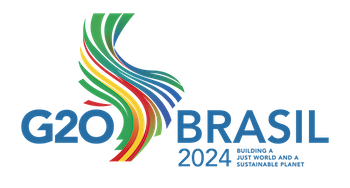By Ramesh Jaura
BERLIN | 23 November (IDN) — President-elect Donald Trump has picked Robert F. Kennedy Jr., environmental lawyer, prominent Kennedy political family member, and activist who became a leading figure among vaccine sceptics. He is expected to be a critical prop for Trump’s policies. Four years ago, as the US recorded a daily death toll from the global pandemic COVID-19, President Donald Trump attacked the World Health Organization (WHO) for being China-centric, adding that he was considering withdrawing funding to the UN agency.
WHO gets its funding from two primary sources: Member States paying their assessed contributions as membership dues (a percentage of a country’s gross domestic product, as agreed by the United Nations General Assembly) and voluntary contributions from Member States and other partners.
Voluntary contributions, mainly from Member States, other United Nations organizations, intergovernmental organizations, philanthropic foundations, the private sector, and other sources, provide 80 per cent of the budget.
The US is one of the agency’s most significant voluntary contributors, accounting for just under 15% of the WHO funding in 2019. The next biggest was the Bill and Melinda Gates Foundation, making up nearly 10% of the funding. Other countries that made significant voluntary contributions in 2019 include the UK (7.8%) and Germany (5.7%).
G20 Leaders’ Declaration consequential
Against this backdrop, the Group of 20 (G20) Leaders’ Declaration is consequential: “We reiterate the central coordinating role of the World Health Organization (WHO) in the global health architecture, supported by adequate, predictable, transparent, flexible and sustainable financing. We support conducting the WHO Investment Round as an additional measure for financing the WHO activities.”
“The WHO Investment Round is about mobilizing the predictable, flexible funding needs to save lives, prevent disease and make the world a healthier and safer place,” said Dr Tedros Adhanom Ghebreyesus, WHO Director-General.
The G20 summit, held 18-19 November 2024 in Rio de Janeiro and chaired by Brazil’s President Luiz Inácio Lula da Silva, voiced strong support for a sustainably funded World Health Organization and announced additional financial pledges. This global initiative marks a significant milestone in the evolution of the United Nations agency, with its funding now diversified.
The incoming G20 Chair of South Africa has pledged to continue focusing in 2025 on sustainably financing the organization. South Africa’s President Cyril Ramaphosa said, “We are proud to carry the baton on from Brazil and continue to spotlight the importance of WHO and the need for sustainable financing towards the goal of health for all.”
The G20 (Group of 20) encompasses 19 countries—Argentina, Australia, Brazil, Canada, China, France, Germany, India, Indonesia, Italy, Japan, Korea, Mexico, Saudi Arabia, South Africa, Russia, Türkiye, UK and USA—and two regional bodies: the African Union and the European Union.
The G20 members represent about 85 per cent of the world’s GDP (gross domestic product), more than 75 per cent of world trade and around two-thirds of the global population.
The UN health agency’s investment Round is raising funds for WHO’s strategy for global health, the Fourteenth General Programme of Work, which can save an additional 40 million lives over the next four years. The Investment Round has successfully shifted WHO’s funding model to be more predictable, flexible and resilient.
With the pledges from Australia, Indonesia and Spain at the Leaders’ Summit, WHO has now received commitments of US$1.7 billion. These significant financial pledges, along with other signed funding agreements and expected funding from partnerships, ensure that WHO has US$3.8 billion for the next four years, providing a solid financial foundation for its operations.
Thus, the WHO has raised 53% of the US$7.1 billion needed, successfully increasing predictability compared to 2020, when it secured only 17% of funding for its previous plan. WHO Member States and partners will continue efforts to cover the remaining gap so the organization can deliver on the strategy for 2025–2028.
The Investment Round has also broadened WHO’s donor base, improving its funding resilience. Since its launch in May, Member States and philanthropic and private sector donors have made 70 new pledges, 39 of which are contributing voluntary funds for the first time.
Seven new donors are the low-income countries, and 21 are middle-income countries. This represents a shift in WHO’s funding base and clearly recognizes the need to invest in health and WHO.
Forty-six donors have pledged more flexible funding, compared to 35 in the last four years, increasing WHO’s ability to use the funds where they are most needed. Several other governments and donors will pledge to the Investment Round in the coming months.
Brazil’s President Lula said: “The World Health Organization represents humanity’s greatest ideals. Investment over the next four years will be repaid many times over in well-being gained. It will set the foundation for future generations.”
German Chancellor Olaf Scholz said: “The work of the WHO benefits all of us. It needs reliable financing from a broad base. Every contribution counts.”
France’s President Emmanuel Macron said, “The World Health Organization deserves our support as our unique common, universal compass to global health. It is the only organization technically and politically able to coordinate our global action and edict universal norms and advice in the field of health.”
As part of this investment round, the WHO is bringing to life a new academy open to all health practitioners worldwide. This initiative, aimed at enhancing human capacity in the health sector, is a beacon of hope for the future of global health. In a nutshell, investing in WHO strengthens our capacity to respond to health crises, particularly pandemics. [IDN-InDepthNews]
Photo: WHO Director-General Dr Tedros Adhanom Ghebreyesus (left), President of Brazil Luiz Inácio Lula da Silva (centre) and Brazi’s Minister of Health Nísia Trindade (right) at the G20 Leaders’ Summit during an event of support to WHO’s Investment Round, Rio de Janeiro, 19 November 2024. Credit: PAHO / WHO / Karina Zambrana.



